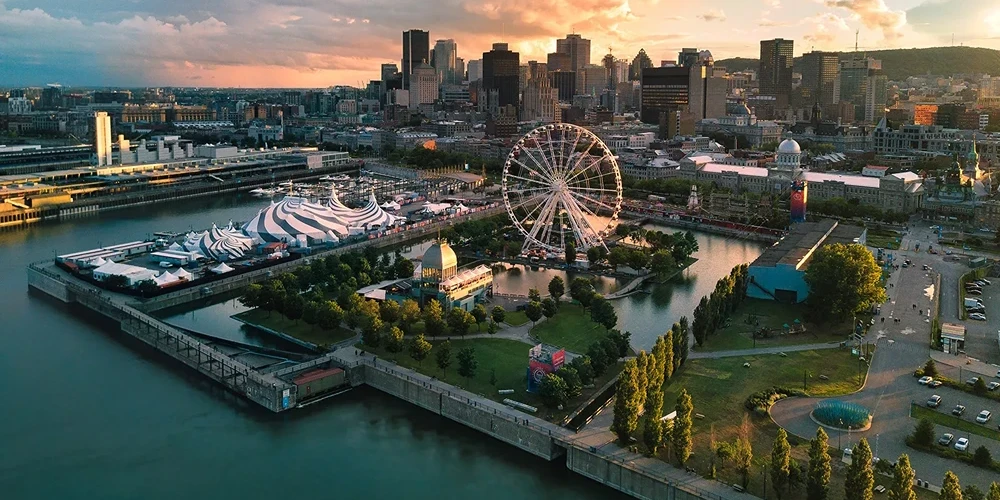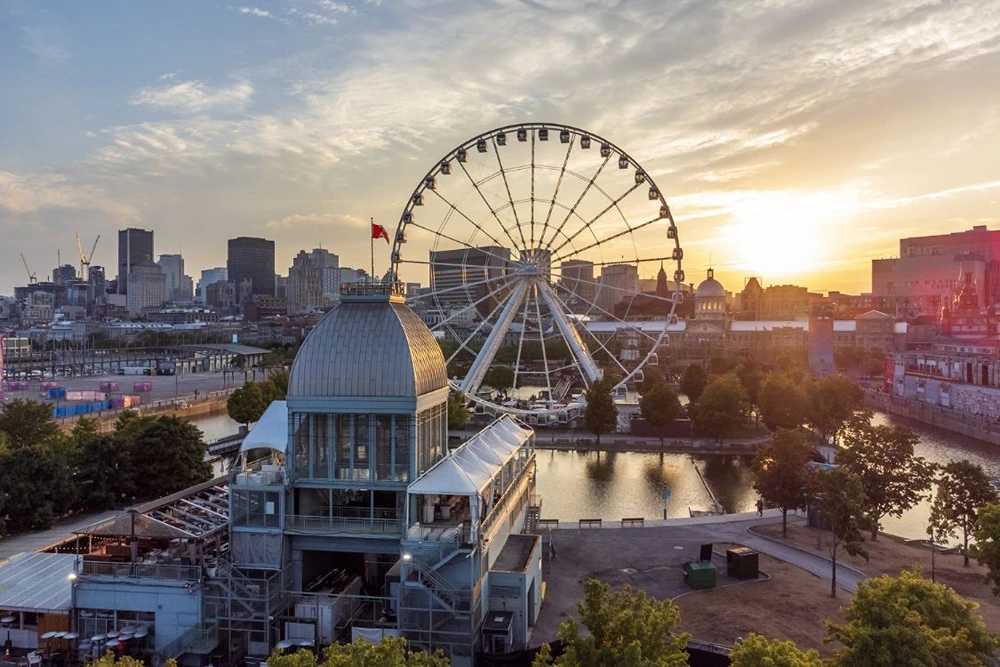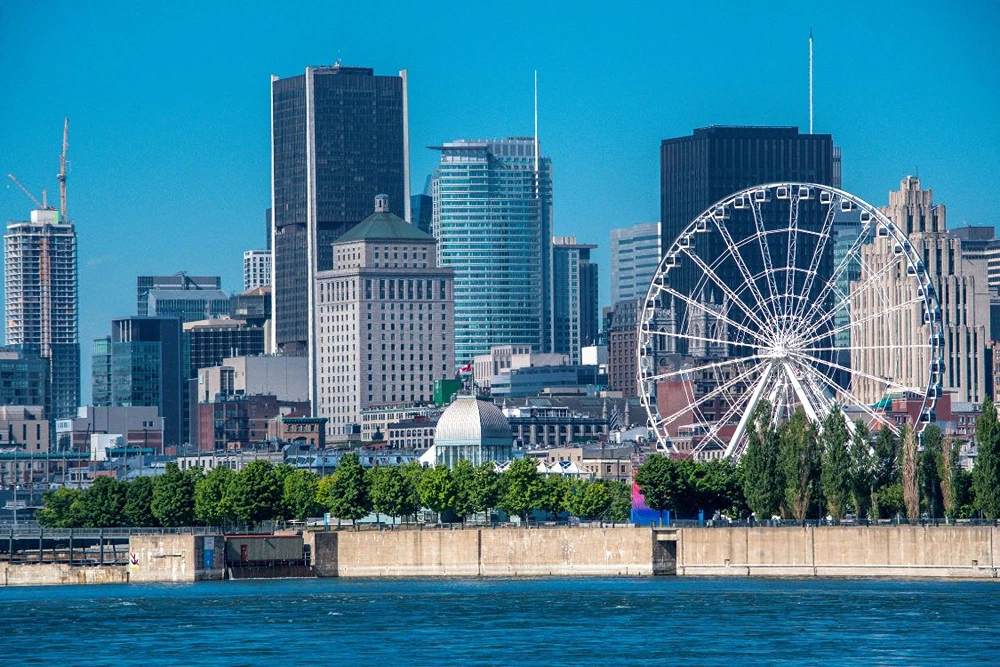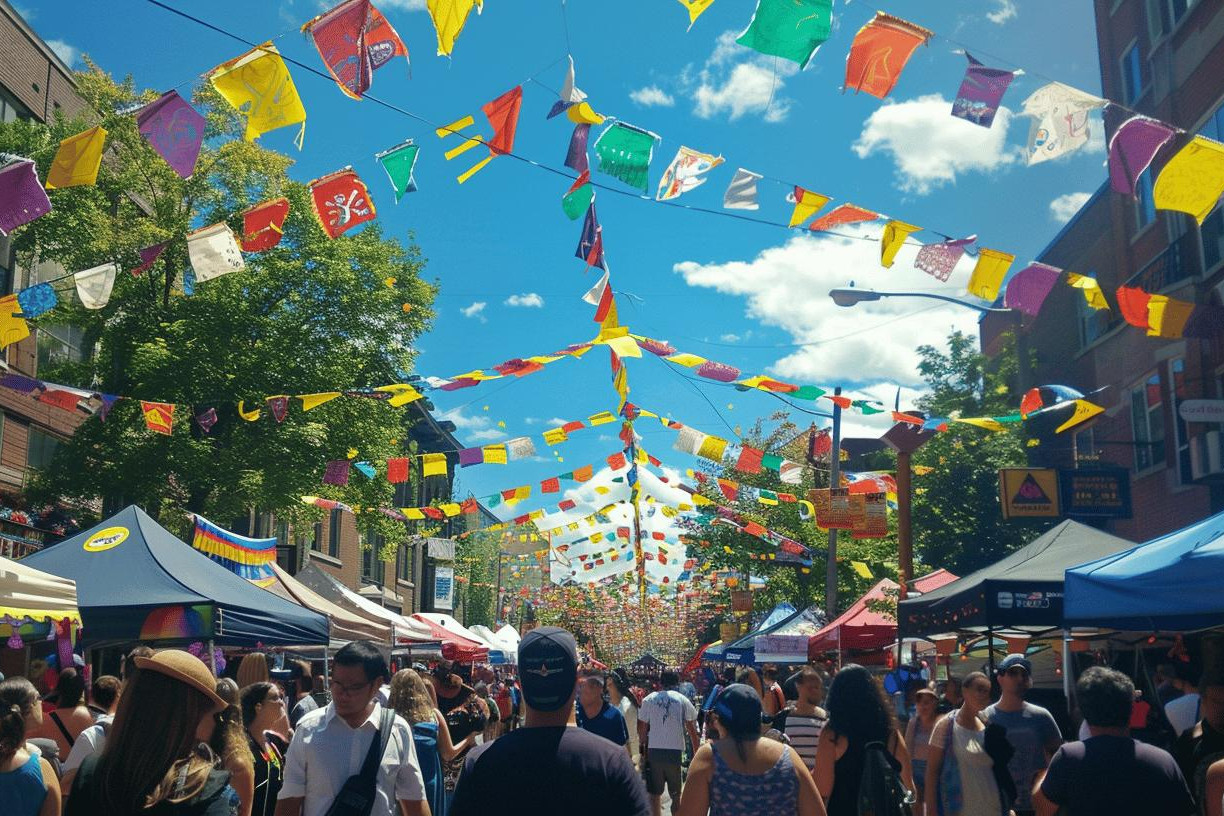Key Highlights:
- Location: Situated on an island in the Saint Lawrence River in Quebec
- Population: Approximately 1.7 million in the city, 4 million in the greater metropolitan area
- Languages: Officially bilingual (French and English), with French being the predominant language
- Nickname: “The City of a Hundred Steeples” due to its many churches
Montreal is a city that seamlessly blends old-world architecture with modern innovation, offering a diverse range of experiences for every type of traveler.
Travel Resources
To help you plan your perfect trip to Montreal, here are some essential resources:
- Flights: Find affordable flights to Montreal-Pierre Elliott Trudeau International Airport (YUL) using our flight comparison tools.
- Insurance: Secure comprehensive travel insurance to protect against unexpected events.
- Car Rental: Book a rental car for flexibility in exploring Montreal and its surroundings.
- Tours: Discover guided tours showcasing Montreal’s rich history, culture, and hidden gems.
- Packing: Use our Montreal-specific packing checklist to ensure you’re prepared for all seasons and activities.
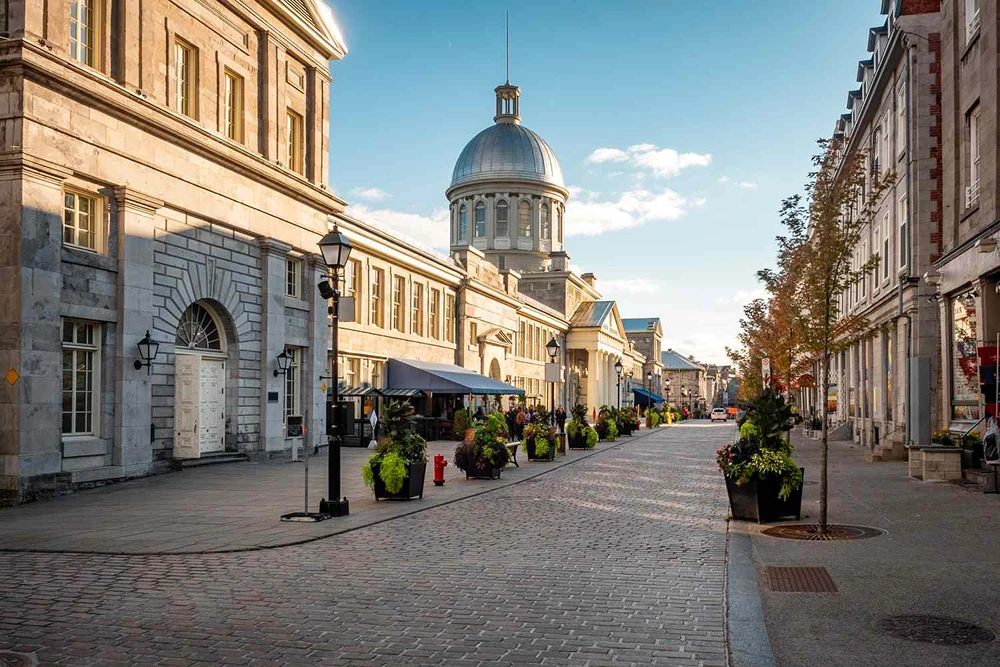
Some History First
Montreal’s history is a fascinating journey from indigenous settlement to French colony to modern multicultural metropolis.
Key Historical Points:
- 1535: Jacques Cartier becomes the first European to visit the area
- 1642: Founding of Ville-Marie (later Montreal) by French colonists
- 1760: British conquest of New France, including Montreal
- 1832: Montreal is incorporated as a city
- 1967: Expo 67 world’s fair puts Montreal on the global stage
- 1976: Montreal hosts the Summer Olympics
Today, Montreal’s rich history is evident in its architecture, museums, and the very fabric of its diverse communities.
Montreal Today
Modern Montreal is a dynamic city that embraces its past while looking firmly to the future.
Notable Aspects of Contemporary Montreal:
- Cultural Hub: Home to numerous festivals, including the world-famous Just for Laughs comedy festival
- Educational Center: Houses several prestigious universities, including McGill and Université de Montréal
- Economic Powerhouse: Strong in aerospace, pharmaceuticals, technology, and creative industries
- Sustainable City: Committed to green initiatives and named a UNESCO City of Design
- Multilingual Society: A truly cosmopolitan city where many residents speak three or more languages
Is Montreal Safe?
Montreal is generally considered a safe city for both residents and tourists, with a relatively low crime rate compared to other major North American cities.
Safety Tips:
- Exercise normal precautions as you would in any urban environment
- Be aware of pickpocketing in tourist areas and on public transportation
- In winter, be cautious of icy sidewalks and watch for falling ice from buildings
- The metro is generally safe, even late at night, but stay alert in less crowded areas
Emergency Services: Dial 911 for police, fire, or medical emergencies
Where is Montreal?
Montreal is strategically located in the southwestern part of the province of Quebec, Canada.
Geographical Details:
- Coordinates: 45°30′N 73°34′W
- Area:50 km² (166.60 sq mi)
- Terrain: Located on the Island of Montreal, at the confluence of the Saint Lawrence and Ottawa Rivers
Nearby Attractions:
- Quebec City: About 3 hours northeast
- Ottawa: About 2 hours west
- Mont-Tremblant: About 1.5 hours north
Latest Articles
From The Area
What is the Best Time to Visit Montreal?
Montreal experiences four distinct seasons, each offering its own unique charm and activities.
Seasonal Highlights:
- Summer (June-August):
- Pros: Warm weather, numerous festivals, outdoor activities
- Cons: Peak tourist season, higher prices
- Fall (September-November):
- Pros: Beautiful fall foliage, comfortable temperatures, fewer crowds
- Cons: Increasing chance of rain, some outdoor attractions may close
- Winter (December-February):
- Pros: Winter sports, festive holiday atmosphere, unique winter events like Igloofest
- Cons: Very cold temperatures, snow and ice can affect travel
- Spring (March-May):
- Pros: Warming temperatures, blooming flora, sugar shack season
- Cons: Possibility of late snow, some attractions may have limited hours
Best Time to Visit: For most travelers, late spring to early fall (May to September) offers the best balance of pleasant weather and abundant activities.
How to Get to Montreal & Around
Montreal is well-connected and easy to navigate, whether you’re arriving from abroad or exploring the city itself.
Getting to Montreal:
- By Air: Montreal-Pierre Elliott Trudeau International Airport (YUL) serves numerous domestic and international flights
- By Train: VIA Rail connects Montreal to other major Canadian cities
- By Bus: Several bus companies offer services to Montreal from various North American cities
Getting Around Montreal:
- Public Transit: The Société de transport de Montréal (STM) operates an extensive network of buses and metro lines
- Bixi: Montreal’s bike-sharing system, perfect for exploring during warmer months
- Walking: Many attractions in the downtown core and Old Montreal are within walking distance
- Taxis and Ride-sharing: Readily available throughout the city
Tip: Consider purchasing an OPUS card for easy use of public transportation.
Things to Do in Montreal
Montreal offers a wide array of attractions and activities for visitors of all interests.
Must-Visit Attractions:
- Old Montreal (Vieux-Montréal): Historic district with cobblestone streets and beautiful architecture
- Mount Royal Park: Large park offering panoramic views of the city
- Notre-Dame Basilica: Stunning Gothic Revival church in Old Montreal
- Montreal Botanical Garden: One of the world’s largest botanical gardens
- Olympic Stadium and Montreal Tower: Iconic structures from the 1976 Olympics
Cultural Experiences:
- Montreal Museum of Fine Arts: Canada’s oldest art museum
- Pointe-à-Callière Museum: Museum of archaeology and history
- Place des Arts: Major performing arts center
- Jean-Talon Market: One of North America’s largest open-air markets
Outdoor Activities:
- La Ronde: Six Flags amusement park
- Lachine Canal: Perfect for cycling and picnicking
- Parc Jean-Drapeau: Home to the Montreal Casino and site of many festivals
Where To Stay In Montreal
Montreal offers a wide range of accommodations to suit every budget and preference.
Popular Areas to Stay:
- Old Montreal: For history buffs and those wanting a European feel
- Downtown: Ideal for business travelers and those wanting to be close to major attractions
- Plateau-Mont-Royal: Trendy area known for its restaurants, bars, and boutiques
- Mile End: Hipster neighborhood with a vibrant arts scene
Accommodation Types:
- Luxury hotels
- Boutique hotels
- Budget-friendly chain hotels
- Bed and breakfasts
- Hostels for budget travelers
Tip: Book in advance if visiting during popular festivals like the Montreal Jazz Festival or Just for Laughs.
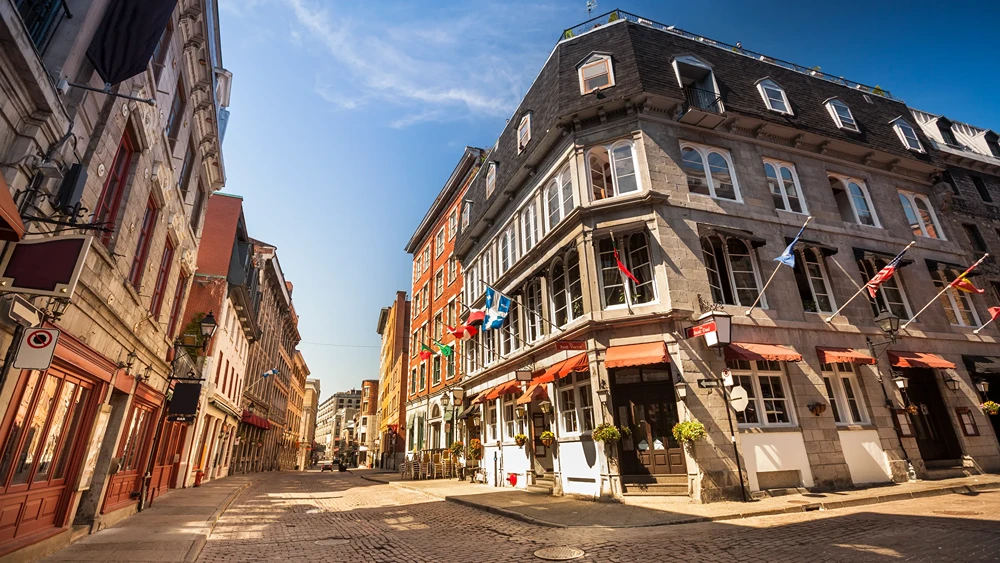
What To Eat In Montreal
Montreal is renowned for its culinary scene, blending French traditions with multicultural influences.
Must-Try Local Specialties:
- Montreal-style Bagels: Smaller, sweeter, and denser than their New York counterparts
- Poutine: French fries topped with gravy and cheese curds
- Smoked Meat: Montreal’s answer to pastrami, best tried at iconic delis like Schwartz’s
- Maple Syrup Products: From traditional syrup to maple butter and candies
- Tourtière: A traditional Québécois meat pie
Notable Dining Areas:
- Mile End: Known for its bagel shops and hipster cafes
- Little Italy: Home to the Jean-Talon Market and numerous Italian restaurants
- Chinatown: Authentic Asian cuisine
- Plateau-Mont-Royal: Diverse range of restaurants and bars
Tip: Don’t miss trying a “steamie” (steamed hot dog) at a local casse-croûte (snack bar).
Entry & Exit Requirements
Visitors to Montreal must comply with Canadian immigration regulations.
Key Requirements:
- Valid Passport: Required for all international visitors
- eTA or Visa: Electronic Travel Authorization (eTA) required for visa-exempt foreign nationals flying to Canada. Others may need a visitor visa.
- Length of Stay: Typically up to 6 months for tourists
- Proof of Funds: May be required to show you can support yourself during your stay
- Return Ticket: May be asked to show proof of intention to leave Canada
Note: Requirements can change. Always check the official Government of Canada website for the most up-to-date information.
What To Pack For Your Trip
Montreal’s weather can vary greatly depending on the season, so packing adaptable clothing is key.
Essential Items:
- Layered Clothing: Temperatures can fluctuate, especially in spring and fall
- Comfortable Walking Shoes: Montreal is a great city to explore on foot
- Winter Gear: If visiting in colder months, pack a warm coat, gloves, hat, and boots
- Rain Jacket: Weather can be unpredictable, especially in spring and fall
- French Phrasebook: While many Montrealers speak English, knowing some French is appreciated
- Adaptor: If coming from outside North America (Canada uses 110V, 60Hz)
- Formal Attire: For fine dining or attending cultural events
Tip: In winter, bring ice grips for your shoes to navigate icy sidewalks safely.
Remember to check current local guidelines and restrictions before your trip, as they may affect your travel plans and experiences in Montreal.
FAQs
Check the Government of Canada’s official website to determine if you need a visa based on your nationality.
Montreal is a bilingual city with French and English as the primary languages spoken.
Enjoy outdoor activities like biking along the Lachine Canal, hiking on Mount Royal, and exploring the city’s parks and waterfront.


